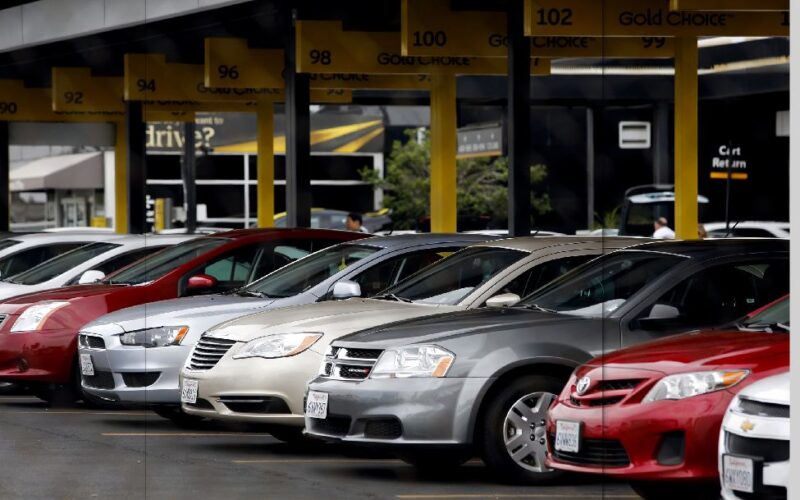As someone who has experienced renting cars multiple times for travel adventures, I know the convenience and potential challenges associated with car rentals first-hand. That is why I would like to provide you with four Things You Need To Do When You Rent a Car , these tips should make the rental car process smooth and seamless no matter if it is your first or tenth rental experience!
Tips On Things You Must Remember When Renting a Car
- Compare Prices Preisvergleich is one of the key components to renting a car successfully, as you want to ensure you receive the best offer available from all available rental car agencies. Websites such as Kayak or Expedia make this task simpler by consolidating all company prices at once for easy comparison.
Just comparing base rental costs isn’t enough; make sure that all associated fees, like airport surcharges, insurance costs and mileage charges, are factored into your final cost estimations as these can quickly add up and alter its final outcome.
- Book Your Rental Car Early Reserving your rental car well ahead can save money and eliminate last-minute stress. Earlier booking increases the likelihood that you find an attractive offer; otherwise you risk having to pay more or your preferred model may no longer be available when trying to reserve at the last moment.
Booking early can be especially crucial if traveling during peak seasons; rental cars become scarcer and more costly quickly. Once you know your dates and itinerary, book your rental car as quickly as possible to ensure a hassle-free travel experience.
- Before signing your rental agreement, take time to carefully read through and understand its contents – such as insurance coverage, mileage allowance and cancellation policies – which outlines all terms and conditions related to your rental experience. Understanding these details allows for clarity about exactly what agreement has been reached upon.
Should you have any queries, don’t be reluctant to speak up! A rental car agent will be more than willing to explain any unclear parts of the agreement while making sure all rental terms and conditions meet with your satisfaction.
- Before driving away from the rental car counter, take time to thoroughly examine your rental car for any dents, dings, scratches or other forms of damage that require attention. Take photos or video footage as evidence in case a dispute should arise later on.
Be sure to notify the rental car agent of any damages immediately; they should record it in your rental agreement and give a copy for your records – that way you won’t be held accountable for damages you didn’t cause! This way you won’t end up bearing responsibility.
Things To Look Out For in Renting a Car Agreement
Before renting a car, it’s essential that you read over the rental agreement carefully in order to fully comprehend its terms and conditions. Here are a few key things you should look out for in your agreement:
Rental Period: Your rental agreement should clearly outline your rental period, from pick-up dates and times through return of your car. Please ensure all dates and times listed are correct to allow yourself enough time for returning the car on schedule.
Rental Rate: Your rental agreement should specify both a rental rate and any extra charges such as taxes, fees or insurance in its rental rate. Ensure you understand exactly how much this will cost and what exactly is covered within its scope.
Insurance Coverage: Your rental agreement should specify which types of coverage come included with each rental rate and what additional policies may be available – be sure you understand them all as this could impact what’s covered under each one.
Fuel Policy: Your rental agreement should specify what their fuel policy entails, including whether you must return with an empty tank of gas, or whether fuel charges will apply if that does not happen. Make sure to understand this fully so you know exactly what will occur if this rule is violated.
Mileage Limit: When renting, make sure the rental agreement includes details regarding any mileage limits or additional charges that might apply if they’re exceeded. Ensure you understand these details thoroughly to avoid incurring unnecessary extra costs if going over.
Additional Drivers: Your rental agreement should set forth its policy on additional drivers, whether or not they’re allowed and any possible additional fees that apply – ensure you understand this in order to add them successfully to the rental agreement.
Damage and Liability: Your rental agreement should outline its policy on damage and liability, detailing who will bear responsibility for any damage to the car as well as liabilities that could arise during its rental. It’s essential that you understand both your responsibilities as well as any limits placed upon their liability.
Restrictions: Make sure that any restrictions listed in your rental agreement, such as geographical constraints or prohibition from driving on certain types of roads, have no adverse impact on your travel plans and that any necessary decisions have been taken before accepting them.
Condition of Rental Car: Before signing your rental agreement, always inspect the car thoroughly to determine its condition – any signs of wear-and-tear must be noted on your agreement along with photographs taken for documentation purposes.
What To Check Before Exiting The Rental Agency
Before leaving a rental car agency, it’s essential that you inspect the car thoroughly to make sure there is no pre existing damage or mechanical problems with it. Here are a few important things you should look out for prior to departing:
Exterior Condition: Before driving away with the rental car, walk around it carefully to look for any scratches, dents or other forms of damage on its exterior surfaces such as the roof, hood and trunk. If any is identified, inform the rental agent as soon as possible while taking photographs to document any incident(s).
Interior Condition: When inspecting your car’s interior for signs of damage or staining on seats, dashboard, carpeting and carpet padding, as well as to verify all controls such as air conditioning and radio are working effectively, make sure that if any are present they must all function as intended.
Tires and wheels: Inspect your tires and wheels regularly for any signs of damage such as flat spots or bulges, check that tire pressure meets recommendations, and that tread depth meets requirements.
Lights and signals: To make sure all lights and signals, including headlights, taillights, brake lights and turn signals are working as intended, it is necessary to test all available headlamps, taillamps, brake lights and turn signals in your car to make sure everything works optimally.
Windshield and Mirrors: Check both windshield and mirror for cracks or chips, and ensure the wipers work appropriately.
Gas Level: Confirm that your gas levels correspond with those listed on your rental agreement and, should any be lower, inform the agent immediately.
Test Key and Remote to Make Sure They Function Properly (and that You Have Both Before Departing the Agency).
Check Here For Answers on Things to Consider Before Renting Car (FAQs).
Renting a car can be an efficient and flexible way of travelling for business or pleasure; however, there are certain things you must remember and do when renting one to ensure a positive rental experience. Below are frequently asked questions (FAQs) related to renting cars.
What documents and requirements must I submit when renting a car?
Renting a car usually requires having your valid driver’s license, credit card in your own name and proof of insurance ready. Some rental car companies may also impose other criteria – like minimum age requirements or deposits – so check before renting one from them!
How can I reserve a rental car?
Reservation of rental cars can be done online, over the phone or directly at rental car counters. When making reservations you will need to provide information such as your name and contact info as well as pick-up/drop off location details when reserving a vehicle.
What should I do if I notice damage on my rental car after leaving the agency?
Should you discover damage after leaving the rental car agency, immediately report it. They may require that you fill out an incident report or take photographs to document this incident.
What options exist for insurance coverage?
Most rental car companies provide insurance at an additional fee; however, your personal car or credit card policy might also provide some form of coverage – be sure to read all policies prior to renting the car so as to avoid overspending on unnecessary coverage.
What should I do in case of an accident in my rental car?
If an accident happens with your rental car, immediately call the police and notify the rental car company so they can give instructions as to what steps need to be taken next.
How can I return the rental car?
As part of returning your rental car, ensure to fill its gas tank up completely. Your rental company may conduct an inspection to assess any damages to the car; should there be any repairs or cleaning fees applied against, additional fees
Read Next: 10 Expert Tips on How to Find the Best Therapist for You








